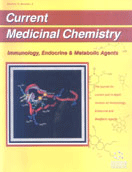Abstract
Alzheimers disease (AD) is believed to involve increased soluble but toxic beta amyloid (Aβ) peptide aggregates, leading to the accumulation of insoluble Aβ deposits, inflammation, oxidative damage, tau pathology and ultimately cognitive deficits. Blocking Aβ formation early should prevent AD, but most interventions are likely to occur after seeding of deposits and tangles and after initiation of the amyloid cascade. In order to identify agents that might suppress both amyloid and the response to amyloid in vivo, we infused toxic soluble Aβ into rat ventricles and screened agents targeting amyloid, oxidative damage and inflammation. The combined NSAID / antioxidant curcumin was found to be most efficacious in reducing amyloid, oxidative damage, inflammation and synaptic marker loss. Similar curcumin benefits were then shown in APPsw transgenic mice. One central mechanism underlying curcumins reductions in soluble and guanidine-extracted insoluble Aβ appears to be stimulation of phagocytic clearance pathways. Curcumin stimulates amyloid phagocytosis and clearance while exerting net anti-inflammatory activity. Because curcumin and its derivatives (curcuminoids) also protect against the response to amyloid, particularly the oxidative damage and resulting synaptic loss, they appear well suited for AD treatment. Evidence also supports curcumin effects on reducing Aβ aggregation and lowering cholesterol. Low cost, low dose efficacy, low toxicity and multiple potential protective activities make curcumin and its derivatives strong candidates for AD prevention.
Keywords: curcuminoid, alzheimer disease, curcumin, nsaids
 21
21








